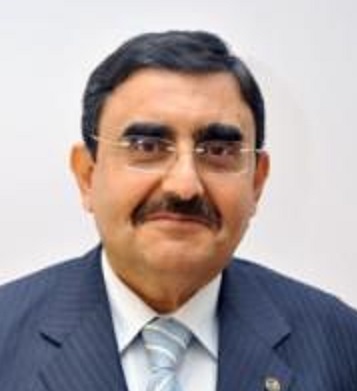CAIRO: Dealing with budget cuts is the main challenge that lies in the face of achieving the United Nations priorities for 2012, according to the Cairo director of United Nations Information Center, Khawla Mattar.
“After recent budget cuts, due to the world financial crisis, we’ll see how we can achieve more with less,” Mattar said, noting that most regional organizations were also facing this problem in light of the current economic circumstances.
The UNIC held a briefing on Wednesday to discuss UN priorities in 2012, particularly the goals set by Secretary-General Ban Ki-Moon for his beginning second term regarding the Arab world and the UN in general.
“We have to address climate change, water scarcity, food crisis, women’s empowerment, energy shortages, and global health issues,” said Ban in a pre-recorded segment presentation, where he spoke to the UN radio.
“I have seen the strong power of partnerships. If we strengthen these partnerships across governments, business communities, civil organizations, and philanthropists, then I think all these powerful partnerships can bring us towards the right direction,” he continued. “Being united depends on us.”
Presenting the eight priorities for the UN outlined by the secretary-general was Mattar, who said that Ban specifically spoke a lot about optimism in Tunisia and Egypt.
Ban’s eight priorities were: sustainable development, climate change, empowerment of women, world safety and security, human rights and accountability of world leaders, confrontation and prevention of international catastrophes, nuclear disarmament and non-proliferation, and reform within the UN, respectively.
Mattar noted that many of the priorities were interrelated, such as sustainable development, climate change and catastrophe prevention. An addition, so were the first three together.
Mattar noted that the secretary-general “connects between equality and women’s empowerment, regarding it as of prime importance,” this objective being among those not moving forward as fast as the UN believed was adequate.
“You can’t change the environment without empowering women; and education and knowledge have to be a productive part of each and every society,” she said. “We still haven’t achieved much in this aspect, not just the Arab states but the whole world.”
Mattar also noted that the UN believes violence against women was a large obstacle to empowerment, which led the secretary-general to create one entity for this purpose – UN Women – rather than leaving the effort as previous “scattered between four agencies.”
More on the topic, she noted that after the 2011 uprising in Egypt, there has been deterioration for all previous achievements for women, which prompted agency director Michelle Bachelet to visit the country three times, reflecting the importance put by the head authority.
“We’re trying to achieve more in terms of violence,” Mattar also noted, “Cairo has been chosen as one of ‘safe cities’ initiative where we create spots that are safe for women.”
When questions shifted towards the recent elections and the role the UN will play if parliament starts legislative countering women, Mattar said that “the UN has to wait to see what will happen.”
She noted however, that a reaction was certain if parliament plays that role, although keeping in mind not to interfere with internal affairs.
Along similar lines, Mattar spoke regarding the fourth and fifth outlined priorities, in which she said that Ban had specifically targeted two sub-priorities, namely special humanitarian attention to Sudan, due to continuing struggles in the different regions regarding population and division of natural resources.
The second sub-priority echoed what was previously said regarding the establishment democracy in the Middle East and North Africa (MENA) region, one that “hasn’t been blessed with democracy in recent years.”
She also noted that accountability was important “as the uprisings and revolutions [of 2011] have been a vivid example of how human rights can lead to a revolt.”
“People have a right for dignity and to live with no fear, no hunger nor poverty,” Mattar added, “the UN would like to see world leaders who have committed crimes against humanity punished for it,” along the examples of Yugoslavia and Rwanda.
Regarding upcoming events, Mattar announced that a seminar on “assistance to the Palestinian people” would be held in Cairo by early February to discuss the Palestinian issue.
She also said that the next six months will see lots of UN activity in preparation for the 2012 Rio summit, held 20 years after the previous one to review what had been accomplished.



